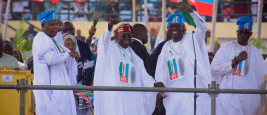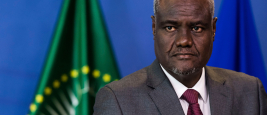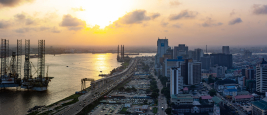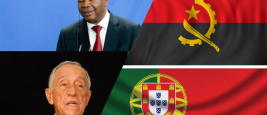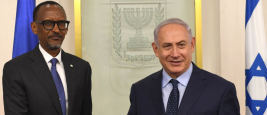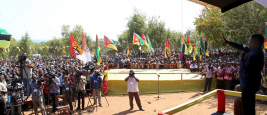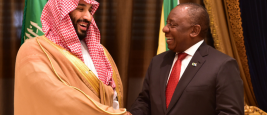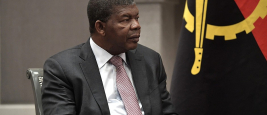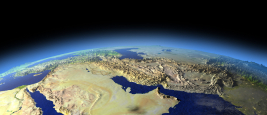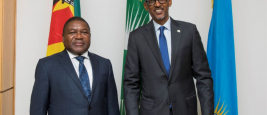
Benjamin AUGE
Associate Research Fellow, Sub-Saharan Africa Center / Center for Energy and Climate
Research Interests:
- Oil, gas, governance
- Hydrocarbon exploitation in transboundary and disputed areas
- African diplomacies and relations between Africa and the Arab world
- Algeria, Nigeria, Mauritania, Angola, Equatorial Guinea, Uganda, Democratic Republic of Congo, Republic of Congo, Gabon, Mozambique
Benjamin Augé has been an Associate Research Fellow at Ifri since June 2010. He holds a PhD in geography from the French Institute of Geopolitics (University of Paris 8) and is also the editor-in-chief of the newsletter Africa Energy Intelligence (Indigo Publications Group). He teaches the Geopolitics of oil and gas in Africa and the specific cooperation between Gulf countries and Africa within HEC Executive masters. He is also a guest lecturer at the Netherlands Diplomatic Academy (Clingendael).
His research focuses on the governance of the oil and gas sector in African countries. He is particularly interested in conflicts between different actors (local, national, international) for the control of oil areas as well as border disputes related to oil and gas fields. Benjamin Augé also works on the relations between the African continent and some other external powers (Qatar, Saudi Arabia, Turkey, Cuba and Israel) and on the African Union issues.
Voter turnout for Nigeria's presidential elections in February-March 2023 has never been so low since the country's return to democracy in 1999. Nigeria's new president, Ahmed Bola Tinubu, must now reassure voters that Africa's leading economy is capable of putting the lie to a persistent...
The election of the Commission to run the African Union (AU) on February 6 and 7, 2021 was an important step towards implementing its institutional reform. The Commission is the institution’s real government, setting the pan-African organization’s objectives under the leadership of the Heads...
The sharp rebound in oil prices since the second half of 2020, to nearly $70 per barrel in May 2021, represents only a temporary respite for oil-dependent African economies that must change their economic model very quickly.
Whereas the strong ties between France and its former colonies in Africa have been studied extensively, the relationships between Portugal and Lusophone Africa have attracted less attention. This editorial offers insights into the political, economic, and diplomatic interactions between Lisbon...
Since he came to power in 2009, Israel’s Prime Minister Benjamin Netanyahu has not made Israeli-African relations a priority in his foreign policy.
The vast gas discoveries in Mozambique, some 160 trillion cubic feet (4,530 billion cubic meters), will make this very poor country (6th lowest gross national income (GNI) per capita – the lowest in Africa) one of the world’s future major producers of liquefied natural gas (LNG) within two...
Until recently, Saudi Arabia was the country out of the Gulf countries that had the greatest number of diplomatic missions in Africa (27[1]).
...In 2017, the coming to power of João Lourenço put an end to nearly four decades of rule by the former head of state, José Eduardo Dos Santos.
East Africa has the potential to experience a gas and liquefied natural gas (LNG) export boom in the coming years due to several projects that have been released.
On June 5th 2017, Saudi Arabia, the United Arab Emirates, Egypt and Bahrain broke off diplomatic relations with Qatar and agreed to isolate the Emirate via an air and land blockade.
Companies affiliated with the powerful Crystal Ventures holding company, the financial arm of Kigali's ruling party, are already present in Mozambique.
Angola is expected to formally announce the end of President Jose Eduardo Dos Santos' controversial 37-year rule Saturday, and name a successor to lead the ailing African oil-producing country.
Aljazeera Center for Studies, March 2015
...



